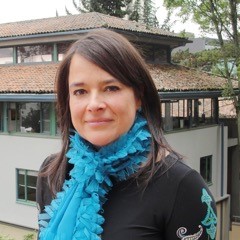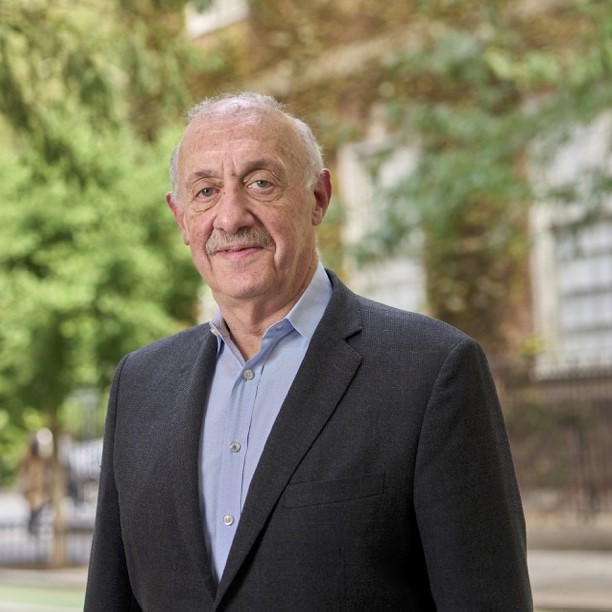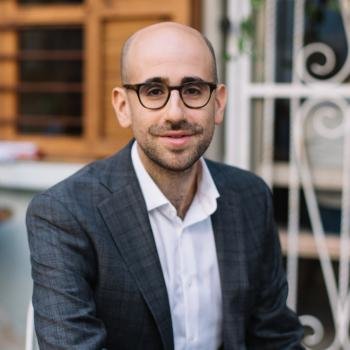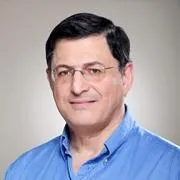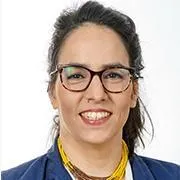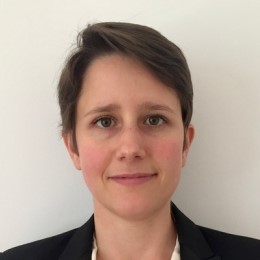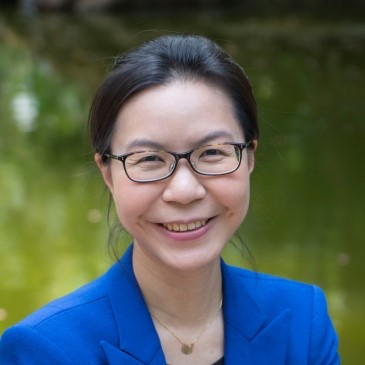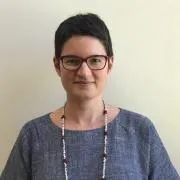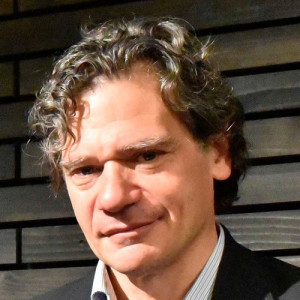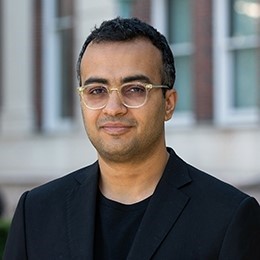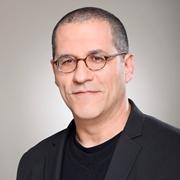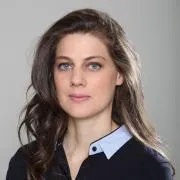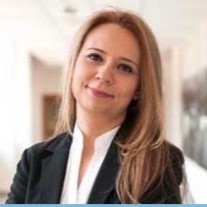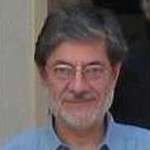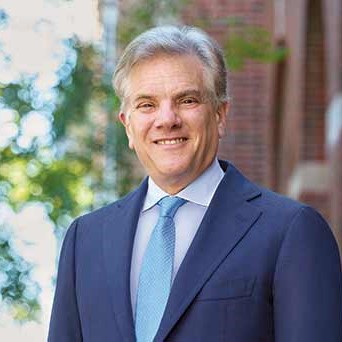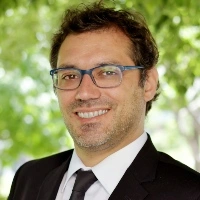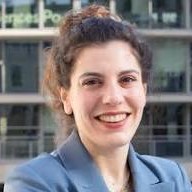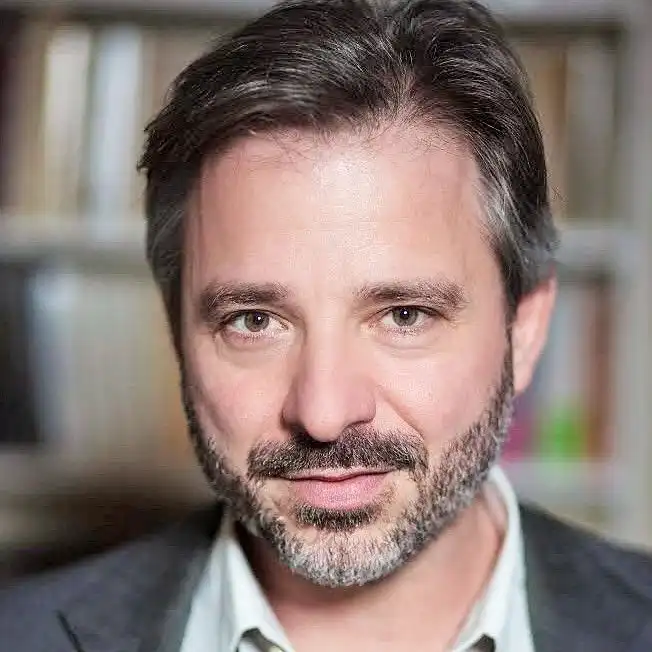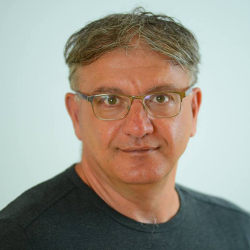TIL Conference: Liberal / Democracy
Academic Organizers and presenters:
|
Helena Alviar García |
Law School, SciencesPo |
|---|---|
|
|
Helena Alviar García is a Colombian SJD from Harvard Law School and lawyer from Universidad de Los Andes in Bogotá, Colombia. She served as Dean of Los Andes Law School where she also held tenure as full professor (profesora titular), teaching courses on Property, Public law, legal theory and feminist theory. She has been a visiting professor in universities in Latin America, Europe and the United States including Harvard Law School, University of Pennsylvania, Università di Torino, University of Miami, Universidad de Puerto Rico and University of Wisconsin in Madison. Notably, she was the Robert F. Kennedy Visiting Professor at Harvard Law School in 2017; the Bok Distinguished Visiting Professor at Penn Law School in 2015 and the Tinker Visiting Professor at the University of Wisconsin at Madison in 2008. An expert in law and development, property law, social and economic rights, feminism and transitional justice, she has been invited to participate in global networks regarding these issues and has edited and co-edited volumes with academics from Europe and the United States. Author of books, book chapters, published academic papers and essays including: Authoritarian Constitutionalism: Critique and Appraisal, co-edited with Günter Frankenberg (2019); The Distributive Politics of Impunity and Anti-Impunity: Lesssons from Four Decades of Colombian Peace Negotiations (co-authored with Karen Engle), in Anti-Impunity and the Human Rights Agenda (2016), Distribution of resources led by courts: a few words of caution in Social and Economic Rights in Theory and Practice (2014), Feminismo y crítica jurídica. El análisis distributivo como alternativa crítica al legalismo liberal coauthored with Isabel Jaramillo (2012), The Unending Quest for Land: The Tale of Broken Constitutional Promises in the Texas Law Review Symposium (2011); Legal Reform, Social Policy, and Gendered Redistribution in Colombia: The Role of the Family in the American University Journal of Gender Social Policy & the Law; Law, Development, and Feminism in Latin America in 2008. Professor Alviar is also the co-founder of Dejusticia, one of the leading human rights NGO’s in the Global South. She is also an academic member of the Institute for Global Law and Policy-IGLP- at Harvard Law School. |
Samuel Issacharoff |
Law School, NYU |
|---|---|
|
|
Samuel Issacharoff is the Bonnie and Richard Reiss Professor of Constitutional Law. He is a leading figure in the study of democracy, constitutions, and the courts, and is the author of Fragile Democracies: Contested Power in the Era of Constitutional Courts and, more recently, Democracy Unmoored: Populism and the Corruption of Popular Sovereignty. He also is a leading figure in the field of procedure and complex litigation, and served as the reporter for the American Law Institute’s Principles of Aggregate Litigation. He served as a senior legal advisor to the presidential campaigns of Barack Obama and has long experience as an appellate advocate in American courts. He is a member of the American Academy of Arts and Sciences. |
Shai Lavi |
Law, Van Leer Jerusalem Institute & Tel Aviv University |
|---|---|
|
|
Shai Lavi is Director of the Van Leer Jerusalem Institute and professor of law at Tel Aviv University. He earned his first and second degrees in law and sociology at Tel Aviv University and a Ph.D. in law from the University of California, Berkeley. His research combines insight from sociology, legal theory, and philosophy to study bioethical issues from historical and contemporary perspectives. Specifically, he studies the use of technology at the beginning and end of life. After studying the cultural history of dying in the United States, regulation of beginning of life in Israel, and animal slaughter in Germany, he is currently engaged in a comparative research – in Germany, Turkey, and Israel –on issues related to legal regulation of the body and the tension between religion and secularity. His book on the end of life, The Modern Art of Dying: A History of Euthanasia in the United States, won the 2006 Sociology of Law Distinguished Scholarly Book Award of the American Sociological Association. Prof. Lavi has received a Fulbright Fellowship, the Zeltner Prize for young scholars in law, a grant to establish the Minerva Center for Interdisciplinary Studies of the End of Life, and a research grant from GIF, the German-Israeli Foundation for Scientific Research and Development, to study bioethics and society in Israel, Turkey, and Germany. He has been a visiting professor at Cornell University, the University of Toronto, Yeshiva University in New York, and Humboldt University of Berlin. |
Issachar Rosen-Zvi |
The Buchmann Faculty of Law, Tel Aviv University |
|---|---|
|
|
Issachar (Issi) Rosen-Zvi is a Professor of Law and the Vice Dean at Tel Aviv University’s Faculty of Law. Between 2014-2018 he served as the Academic Director of the Elga Cegla Legal Clinics. He obtained his LL.B. (magna cum laude) from Bar-Ilan University, his LL.M. in law and sociology from Tel Aviv University (summa cum laude). He continued his studies at Stanford Law School, where he received his J.S.D. in June, 2002. He clerked for the Honorable Chief Justice Aharon Barak of the Israeli Supreme Court and practiced law at Kirkland & Ellis, LLP in New York. Rosen-Zvi is a four-times recipient of research grants from the Israeli Science Foundation (ISF) and his papers were selected for the Stanford/Yale Junior Faculty Forum and the Harvard/Stanford International Junior Faculty Forum. He was a visiting professor at Cornell Law School, Northwestern Pritzker School of Law, SciencesPo Law School (Paris), Goethe University (Frankfurt), and the Oñati International Institute for the Sociology of Law (Spain). His areas of research and teaching include administrative law, local government law, law and society, law and geography, environmental law, and civil procedure. His works have been published in prestigious law journals in the United States and in Israel, including Stanford Law Review, U. Penn Law Review, Virginia Law Review, UCLA Law Review, North Carolina Law Review, Law & Society Review, Journal of Empirical Legal Studies, and Tel-Aviv University Law Review. |
Participants:
|
Jacob Abolafia |
The Department of Politics and Government, Ben Gurion University of the Negev |
|---|---|
|
|
I am a political theorist who writes on the history of political thought and critical theory, broadly construed. My first book project, based on my dissertation, “Penal Modernism before Modernity: Correction and Confinement in the History of Political Thought,” advances a new theory of how penal incarceration came to capture the Western philosophical imagination. It traces institutional accounts of incarceration, the moral psychology of crime, and the political economy of punishment from Plato’s Athens to Jeremy Bentham’s London, with an eye towards our present carceral dysfunction. I have published and taught on the history of political thought from classical antiquity to the present day. My ongoing research interests include social and political philosophy from early modernism through critical theorists, Jewish and Islamic political thought, classical philosophy, and the philosophical basis of political economy. I hold a BA (Hons.) in Philosophy from Yale University (2010) and completed my M.Phils in Political Thought and Intellectual History (2011) and Ancient Philosophy (2012) at Cambridge, where I was a Paul Mellon Fellow at Clare College until 2013. After receiving my doctorate from Harvard’s Government Department, I was the 2019-2020 Harvard-Tel Aviv Exchange Fellow at the Edmond J. Safra Center for Ethics at Tel Aviv University. I am currently a senior Lecturer at the Department of Philosophy at Ben-Gurion University of the Negev |
|
Eyal Benvenisti |
The Buchmann Faculty of Law, Tel Aviv University & University of Cambridge |
|---|---|
|
|
Eyal Benvenisti, LL.B (Jerusalem) 1984, LL.M. (Yale) 1988, J.S.D. (Yale) 1990, was Anny and Paul Yanowicz Professor of Human Rights, Tel Aviv University Faculty of Law. From 2016 Whewell Professor of International Law, University of Cambridge. Global Professor at New York University School of Law (since 2003). Was Visiting Professor at several US law schools (Harvard, Columbia, Michigan, Pennsylvania), a Humboldt Fellow at the Humboldt University and the University of Munich and a Visiting Fellow at the Max Planck Institute for International Law at Heidelberg. Recipient most recently of the European Research Council Advanced Grant for research on “Sovereigns as Trustees of Humanity: The Obligations of Nations in an Era of Global interdependence" (GlobalTrust) (2013-2018). Associate Member, Institut de Droit International (2011). From 2016: Editor, British Yearbook of International Law. Serves on the Editorial Board of the American Journal of International Law, and International Law in Domestic Courts. Founding Co-Editor, Theoretical Inquiries in Law (1997-2002, Editor in Chief 2003-2006). Previously Hersch Lauterpacht Professor of International Law at the Hebrew University of Jerusalem Faculty of Law, Director of the Cegla Center for Interdisciplinary Research of the Law at Tel Aviv University (2002-2005), and Director of the Minerva Center for Human Rights at the Hebrew University (2000-2002). Publications include: The Law of Global Governance (The Hague Academy of International Law, 2014); The International Law of Occupation (2nd Ed., Oxford University Press 2012, 1st Ed., Princeton University Press, 1993); Sharing Transboundary Resources: International Law and Optimal Resource Use (Cambridge University Press, 2002); Sovereigns as Trustees of Humanity: On the Accountability of States to Foreign Stakeholders, 107 AM. J. INT’L. L (forthcoming, 2013); Reclaiming Democracy: The Strategic Uses of Foreign and International Law by National Courts, 102 AM. J. INT’L. L 241 (2008); The Empire’s New Clothes: Political Economy and the Fragmentation of International Law, 60 STAN. L. REV. 101 (2007) (with George W. Downs); Exit and Voice in the Age of Globalization, 98 MICH. L. REV. 167 (1999); Collective Action in the Utilization of Shared Freshwater: The Challenges of International Water Resources Law, 90 AM. J. INT’L. L. 384 (1996); Judicial Misgivings regarding the Application of International Norms: An Analysis of Attitudes of National Courts, 4 EUR. J. INT’L. L. 159 (1993). |
|
Yishai Blank |
The Buchmann Faculty of Law, Tel Aviv University |
|---|---|
|
|
Yishai Blank is the Dean of Tel-Aviv University Buchmann Faculty of Law. Yishai’s areas of research and teaching include Local Government Law, Administrative Law, Global Cities, Urban Legal Policy, Law and Secularism, and Legal Theory. Professor Blank obtained his LL.B. and an additional B.A in Philosophy (both magna cum laude) from Tel-Aviv University. He clerked for the Chief Justice of the Israeli Supreme Court, Aharon Barak, and practiced law in the leading law firm I. Gornitzky & Co. Professor Blank continued his studies at Harvard Law School, where he was a Byse Fellowship recipient, and where he received his LL.M. in 1999 and his S.J.D. in 2002. He was a member of the Young Scholars in the Humanities and Social Sciences Forum of the Israeli Academy of Science and Humanities, and he is a three-times recipient of prestigious fellowship from the Israeli Science Foundation (ISF). Prior to him becoming Dean, Yishai was the Director of the Cegla Center for the Interdisciplinary Research of the Law, the Head of the Graduate Committee, and Vice Dean (Academic Affairs). Professor Blank was a visiting professor at Harvard Law School, Cornell Law School, University of Toronto Law School, Queen’s University Law School, Sciences Po Law School (Paris), Brown University, University of Hamburg, and the Oñati International Institute for the Sociology of Law (Spain). Professor Blank’s works have been published in law journals in the United States and in Israel, including Stanford Law Review, Cornell Law Review, North Carolina Law Review, Harvard Journal of International Law, Harvard Civil-Rights Civil-Liberties Law Review, Fordham Urban Law Journal, the Urban Lawyer, Tel-Aviv University Law Review, and Columbia Journal of Transnational Law.
|
|
Ofra Bloch |
The Buchmann Faculty of Law, Tel Aviv University |
|---|---|
|
|
Ofra Bloch is an Assistant Professor at Tel Aviv University, Faculty of Law. Her areas of research and teaching include history and theory of constitutional law, administrative law, antidiscrimination law and education law, with a focus on questions of inequality and political economy. Bloch earned a J.S.D. and LL.M. from Yale Law School, and an LL.M. and LL.B. from Tel Aviv University. She is also a graduate of the Adi Lautman Interdisciplinary Program for Outstanding Students at Tel-Aviv University. Bloch is the recipient of the Alon Scholarship for outstanding junior faculty, Yale University Institution for Social and Policy Studies (ISPS) Fellowship, and the American Society for Legal History Kathryn T. Preyer award. Prior to her graduate studies, Bloch served as a Law Clerk to the Honorable Justice Esther Hayut of the Supreme Court of Israel. Her recent publications include Diversity Gone Wrong: A Historical Inquiry to the Evolving Meaning of Diversity from Bakke to Fisher, 20 University of Pennsylvania Journal of Constitutional Law (2018); The Untold History of Israel’s Affirmative Action for Arab Citizens (1948-1968), Law and History Review (forthcoming) |
|
Margaux Bouaziz |
Law, University of Burgundy |
|---|---|
|
|
Margaux Bouaziz is an associate Professor at the University of Burgundy (France). She specializes in Comparative Constitutional Law, especially US and French Constitutional Law, and History of Political Thought. She did her studies and PhD at the University Panthéon-Sorbonne. Her doctoral thesis on Article 16 of the Declaration of the Rights of Men and of the Citizen and the History of the Notion of Constitution is a major contribution to the understanding of Eighteenth Century Constitutionalism and of the hidden reactionary and conservative face of Constitutionalism in the Eighteenth and Nineteenth Century. In 2019, she expanded her research to US Constitutional. She focuses on the relationship between separation of powers, democracy and fundamental rights, and, through case studies, challenges the assumption that these are separate areas of Constitutional Law: Reproductive Rights and Democracy; Procedural Democracy and Religious Freedom; Emergency Powers of the Executive and Individual Rights. Before joining University of Burgundy, she was a research and teaching fellow at Sciences Po. She currently teaches at Sciences Po, École Normale Supérieure and the University of Burgundy: Comparative Constitutional Law, Political Institutions and French Constitutional Law. |
|
Cora Chan |
Faculty of Law, the University of Hong Kong |
|---|---|
|
|
Cora Chan is Professor of Law at the University of Hong Kong. Her research interests are in constitutional law and theory, administrative law, and human rights. She has written on such topics as proportionality, judicial deference, national security and rights, law and authoritarianism, legal pluralism, subnational constitutionalism, and China-Hong Kong constitutional relations. Her monograph on deference in human rights adjudication is forthcoming with Oxford University Press. She is the co-editor of China’s National Security: Endangering Hong Kong’s Rule of Law? (Hart, 2020). Cora’s research has been recognised by international, territory-wide, and university awards, including the Society of Legal Scholars Best Paper Prize (2012), Hong Kong Research Grants Council Early Career Award (2013), and the inaugural Rosie Young 90 Medal for Outstanding Young Woman Scholar (2021). In 2017, she and Fiona de Londras (Birmingham) were awarded a British Academy / Leverhulme Small Research Grant. Cora was appointed by Hong Kong’s University Grants Committee as a member of the Law Panel for the Research Assessment Exercise (RAE) 2020. She was on the General Council of the International Society of Public Law and is on the editorial boards of Public Law, Asian Journal of Comparative Law, Hong Kong Law Journal, Asia-Pacific Journal on Human Rights and the Law, and Revista de Investigações Constitucionais (Journal of Constitutional Research), the advisory board of the International Journal of Constitutional Law and the Advisory Council of the Oxford Bonavero Institute of Human Rights. Cora holds a BCL and a DPhil in Law from the University of Oxford and a double degree in LLB and political science from the University of Hong Kong. |
|
Natalie Davidson |
The Buchmann Faculty of Law, Tel Aviv University |
|---|---|
|
|
Natalie Davidson is a Senior Lecturer (Associate Professor) at the Law Faculty, which she joined in the Fall of 2017. She holds a joint LLB-Maîtrise (King's College London and Université Paris I Panthéon Sorbonne), LLM (University of London), and doctorate in law (Tel Aviv University). She was a research fellow at the Rapoport Center for Human Rights and Justice at the University of Texas School of Law, and a postdoctoral fellow at the Minerva Center for Human Rights, Hebrew University Jerusalem (Human Rights under Pressure Program). Prior to her doctoral studies, she practiced corporate and banking law in Tel Aviv. Natalie teaches and researches international human rights law, the legal regulation of the global arms trade, and constitutional law, combining legal, historical, and social scientific approaches. She is particularly interested in the ways law enables and constrains violence. Her book American Transitional Justice: Writing Cold War History in Human Rights Litigation revisits landmark torture cases filed in US courts in the 1970s and 1980s under the Alien Tort Statute, and shows that these cases functioned as an unspoken transitional justice mechanism for the US and its authoritarian allies (focusing on Paraguay and the Philippines) to transition out of the Cold War order. Her research project How Domestic Violence Became Torture in International Human Rights Law: A Socio-Legal Inquiry was the recipient of an Israel Science Foundation grant (no. 1938/19). In 2023 she began a new research project, also funded by the Israel Science Foundation, on The Roles of Law in Israeli Security Exports (no. 1217/23). Natalie also directs the team of Israel reporters for the Oxford Reports on International Law in Domestic Courts. |
|
Roberto Garagarella |
Political Philosophy at the Universidad de Buenos Aires |
|---|---|
|
|
Roberto Gargarella is a professor of Constitutional Theory and Political Philosophy at the Universidad de Buenos Aires and at the Universidad Torcuato Di Tella. He received degrees in Law and Sociology from the Universidad de Buenos Aires, an Master's in Political Science from the Facultad Latinoamericana de Ciencias Sociales (FLACSO), and a J.D. and Master's in Law from the University of Chicago. He also conducted postdoctoral research at Balliol College, Oxford. Gargarella has authored and edited more than 25 books in English and Spanish on constitutional theory, political philosophy, and democratic law, with an emphasis on economic and social rights. He has been honored with numerous awards, including a Tinker Scholarship, a Fulbright Scholarship, a Harry Frank Guggenheim Fellowship, and a John Simon Guggenheim Fellowship. Selected as a LLILAS Visiting Resource Professor for fall 2008, Gargarella has also been a visiting professor at the University of Bergen, Southwestern University, University of Oslo, and the Universitat Pompeu Fabre, and a visiting scholar at Columbia University and New York University. |
Roderick M. Hills Jr. |
Law School, NYU |
|---|---|
|
|
Roderick Hills teaches and writes in public law areas with a focus on the law governing division of powers between central and subcentral governments. These areas include constitutional law, local government law, land use regulation, jurisdiction and conflicts of law, and education law. His publications have appeared, among other places, in the Harvard Law Review, Pennsylvania Law Review, Michigan Law Review, Stanford Law Review, the University of Chicago Law Review, and the Supreme Court Law Review. Hills has been a cooperating counsel with the American Civil Liberties Union of Michigan and also files amicus briefs in cases on issues relevant to the autonomy of state and local governments and the protection of their powers from preemption. Hills holds bachelor’s and law degrees from Yale University. He served as a law clerk for Judge Patrick Higginbotham of the US Court of Appeals for the Fifth Circuit and previously taught at the University of Michigan Law School. He is a member of the state bar of New York and the US Supreme Court bar. |
| Madhav Khosla |
Law School, Columbia University |
|---|---|
|
|
Madhav Khosla is an Associate Professor of Law at Columbia University. He is interested in the nature and form of constitutions, especially from a comparative and theoretical perspective. Much of his research and writing in comparative constitutional law has focused on South Asia and India. Khosla studied political theory at Harvard University, where his dissertation was awarded the Edward M. Chase Prize for “the best dissertation on a subject relating to the promotion of world peace”, and law at Yale Law School and the National Law School of India University, Bangalore. Before joining Columbia Law School, he was a Junior Fellow at the Harvard Society of Fellows. Khosla's books include India’s Founding Moment: The Constitution of a Most Surprising Democracy (Harvard University Press 2020), which was an Economist Best Book of 2020 and co-winner of the Order of the Coif Book Award 2021, The Oxford Handbook of the Indian Constitution (ed. with Sujit Choudhry and Pratap Bhanu Mehta, Oxford University Press 2016), and Unstable Constitutionalism: Law and Politics in South Asia (ed. with Mark Tushnet, Cambridge University Press 2015). In addition, Khosla’s writings have been published in journals such as the American Journal of Comparative Law, Harvard Law Review, and the International Journal of Constitutional Law, as well as popular forums like the Atlantic, Foreign Affairs, New York Times, and Time. Khosla’s work has been cited by courts in India and Pakistan. |
|
Roy Kreitner |
The Buchmann Faculty of Law, Tel Aviv University |
|---|---|
|
|
Roy Kreitner teaches courses on private law, legal history, and law and political thought at the law school, where he has been on the faculty since 2001. He received an S.J.D. from Harvard Law School, an LL.B. and an M.A. (Comparative Literature & Semiotics) from Tel-Aviv University, and an A.B. from Brown University. He has been a Visiting Professor at the University of Virginia and at the University of Toronto. He is the author of Calculating Promises: The Emergence of Modern American Contract Doctrine (Stanford University Press, 2007). During 2009-2010 he was a fellow at The Radcliffe Institute for Advanced Study at Harvard University and an American Council of Learned Societies Fellow. In 2010-2011 he was a visiting researcher at the Institute for Global Law and Policy at Harvard Law School. |
| Doreen Lustig |
The Buchmann Faculty of Law, Tel Aviv University |
|---|---|
|
|
Doreen Lustig is a tenured, Associate Professor at Tel Aviv University, Faculty of Law. She teaches and researches in the fields of international law, global governance, constitutional law and climate change. She earned her J.S.D and L.L.M from NYU Law School where she won the 2005 Hauser Research Scholar Fellowship and served as a former IILJ Scholar (Institute of International Law and Justice). She also holds an LL.B. degree (magna cum laude) and B.A degree in sociology and anthropology from Tel Aviv University. Prior to joining Tel Aviv University she clerked for The Honorable Eliezer Rivlin, Justice of the Supreme Court of Israel. She won the 2019 Zeltner Prize in the category of junior legal scholar. Lustig was the Chief Editor of the Tel Aviv U. Law Review and serves as Member of the Editorial Board of the European Journal of International Law. |
|
Bertil Emrah Oder |
Law School, Koç University |
|---|---|
|
|
is full professor of constitutional law and dean at Koç University Law School. After receiving her LLB from Istanbul University Law School, she obtained LLM degree from Marmara University European Union Institute. She received her PhD degree in law with distinction (“summa cum laude”) from University of Cologne (Germany). She served as a full time faculty in law schools of Istanbul University and Galatasaray University.
She worked as associate director and executive member of various centers for EU law, human rights law, international relations and gender studies. She worked as international consultant of UN Women and Inter-Parliamentary Union (IPU) as regards legislative screening and capacity development projects on gender equality. During May-December 2012 she served as academic consultant of Constitutional Reconciliation Committee at Turkish Parliament. She received the title of Henry Morris Lecturer of International and Comparative Law at Chicago Kent College of Law in 2012. She is the member of International Association of Public Law (ICON-S), International Association of Constitutional Law (IACL), Law&Society |
|
Pasquale Pasquino |
Arts & Science, NYU |
|---|---|
|
|
Pasquale Pasquino is Senior Fellow at the CNRS in Paris and Global Distinguished Professor at New York University. He studied classical philology, philosophy and political theory in Naples and Paris I-Sorbonne. Before joining the CNRS and NYU he worked at the Max-Planck-Institut für Geschichte – Göttingen, at the Collège de France – Paris (Histoire des systèmes de pensée) and at King’s College – Cambridge. He published notably a book on Emmanuel Sieyes and the invention of modern constitutionalism in France and numerous articles on the history and theory of state and constitution in Germany, France, England and Italy. |
|
Richard Pildes |
Law School, NYU |
|---|---|
|
|
Richard Pildes is one of the nation’s leading scholars of constitutional law and a specialist in legal issues concerning democracy. A former law clerk to Justice Thurgood Marshall, he has been elected into the American Academy of Arts and Sciences and the American Law Institute, and has also received recognition as a Guggenheim Fellow and a Carnegie Scholar. President Biden appointed him to the President’s Commission on the Supreme Court of the United States. In dozens of articles and his acclaimed casebook, The Law of Democracy, he has helped create an entirely new field of study in the law schools. His work in this field systematically explores legal and policy issues concerning the structure of democratic elections and institutions, such as the role of money in politics, the design of election districts, the regulation of political parties, the structure of voting systems, the representation of minority interests in democratic institutions, and similar issues. He has written on the rise of political polarization in the United States, the transformation of the presidential nominations process, the Voting Rights Act (including editing a book titled The Future of the Voting Rights Act), the dysfunction of America’s political processes, the role of the Supreme Court in overseeing American democracy, and the powers of the American President and Congress. In addition to his scholarship in these areas, he has written on national-security law, the design of the regulatory state, and American constitutional history and theory. As a lawyer, Pildes has successfully argued voting-rights and election-law cases before the United States Supreme Court and the courts of appeals, and as a well-known public commentator, he writes frequently for The New York Times, The Washington Post, and was part of the Emmy-nominated NBC breaking-news team for coverage of the 2000 Bush v. Gore contest |
|
Sergio Verdugo |
Law School, IE University |
|---|---|
|
|
Sergio Verdugo is an Assistant Professor of Law at IE Law School, where he teaches Constitutional Law and Human Rights Law. He is also an Editor of the International Journal of Constitutional Law (ICON) and the Secretary General of the International Society of Public Law (ICON-S). Before joining the IE University, he was the Director of the Center for Constitutional Justice of the Universidad del Desarrollo School of Law, Chile. Dr. Verdugo holds a doctorate in law from the New York University School of Law (NYU) and a master’s degree in law from the University of California, Berkeley. He also holds a Master in Public Law from P. Universidad Católica de Chile, where he won the “Alejandro Silva Bascuñán award, and an LLB from Universidad del Desarrollo, Chile. Professor Verdugo’s research interests include comparative constitutional law, political rights, constitutional theory, the politics of constitutional courts, the theory of democracy, and constitution-making. He is the author of several publications in English and Spanish. His work has been featured in journals such as the Columbia Journal of Transnational Law, the International Journal of Constitutional Law, the Hague Journal on the Rule of Law, the Revista Chilena de Derecho, de Revista de Derecho del Estado, and Estudios Constitucionales. |
|
Raphaële Xenidis |
Law School, SciencesPo |
|---|---|
|
|
Raphaële’s current research focuses on European discrimination and equality law. In the framework of her Ph.D. dissertation, she has worked on issues of intersectionality and intersectional discrimination. Her Marie Curie postdoctoral project explored problems of algorithmic discrimination, bias in automated decision-making systems and data-driven inequality. Raphaële is trained as a political scientist and a lawyer. She holds a PhD in law from the European University Institute. She received Master’s degrees from Sciences Po Lille in France, the Westfälische Wilhelms-Universität in Germany and SAIS Europe, Johns Hopkins University in Italy, as well as a LL.M. in Comparative, European and International laws from the European University Institute. Raphaële has also been a Fulbright-Schuman visiting researcher at Columbia Law School in New York. Before joining Sciences Po, Raphaële was a permanent lecturer in EU law at the School of Law of the University of Edinburgh, a postdoctoral researcher at Utrecht Law School and a member of the coordination team of the European Network of Legal Experts in Gender Equality and Non-Discrimination Law. Raphaële is also a Global Research Fellow at iCourts at the University of Copenhagen. |
|
Mikhaïl Xifaras |
SciencesPo Law School |
|---|---|
|
|
Mikhaïl Xifaras has been Professor of Public Law at Sciences Po since September 2008, where he teaches legal philosophy, property and jurisprudence. He has been a Visiting Professor at Harvard Law school (since 2011) and at Keio Law School in Japan (since 2012). He passed the agrégation de l’enseignement supérieur in Public Law in 2004, the agrégation in Philosophy in 1993, and holds a Doctorate in Philosophy from Besançon in 2001. He graduated from the Ecole Normale Supérieure of Fontenay-Saint Cloud in 1990. Before joining the Sciences Po faculty, he was Professor of Public Law at the Université d'Orléans. He was nominated Junior Member of the Institut Universitaire de France (2006-2011), and has been awarded the the Prix Ouverture Internationale of the Université Libre de Bruxelles (Brussels, 2003), as well as a Marie-Curie Grant from the European Commission (2003). He was a Visiting Fellow at Harvard Law School on a Fulbright Scholarship (2000), and the winner of a Fondation Thiers Grant (1999). |
|
Raef Zreik |
The Van Leer Jerusalem Institute |
|---|---|
|
|
Dr. Raef Zreik is a jurist and a scholar, an expert in political philosophy and the philosophy of law, a lecturer on property law and the theory of law at Ono Academic College, academic co-director of the Minerva Humanities Center at Tel Aviv University, and a senior research fellow at the Van Leer Jerusalem Institute. Dr. Zreik holds first and second degrees in law from the Hebrew University of Jerusalem. He also has an LLM from Columbia Law School and a PhD from Harvard Law School. His doctoral dissertation dealt with Kant’s concept of legal right and the transition from questions of ethics to questions of law. Dr. Zreik was a guest lecturer at Georgetown Law and at the Cogut Institute for the Humanities at Brown University. His research addresses questions pertaining to legal and political theory and issues of citizenship and identity, Zionism, and the Palestinian question. His many publications in these fields have appeared in anthologies and in legal and interdisciplinary journals. At the Van Leer Jerusalem Institute, Dr. Zreik is involved in several projects and teaches in Intellectual Journeys, a program for young intellectual leadership. |


